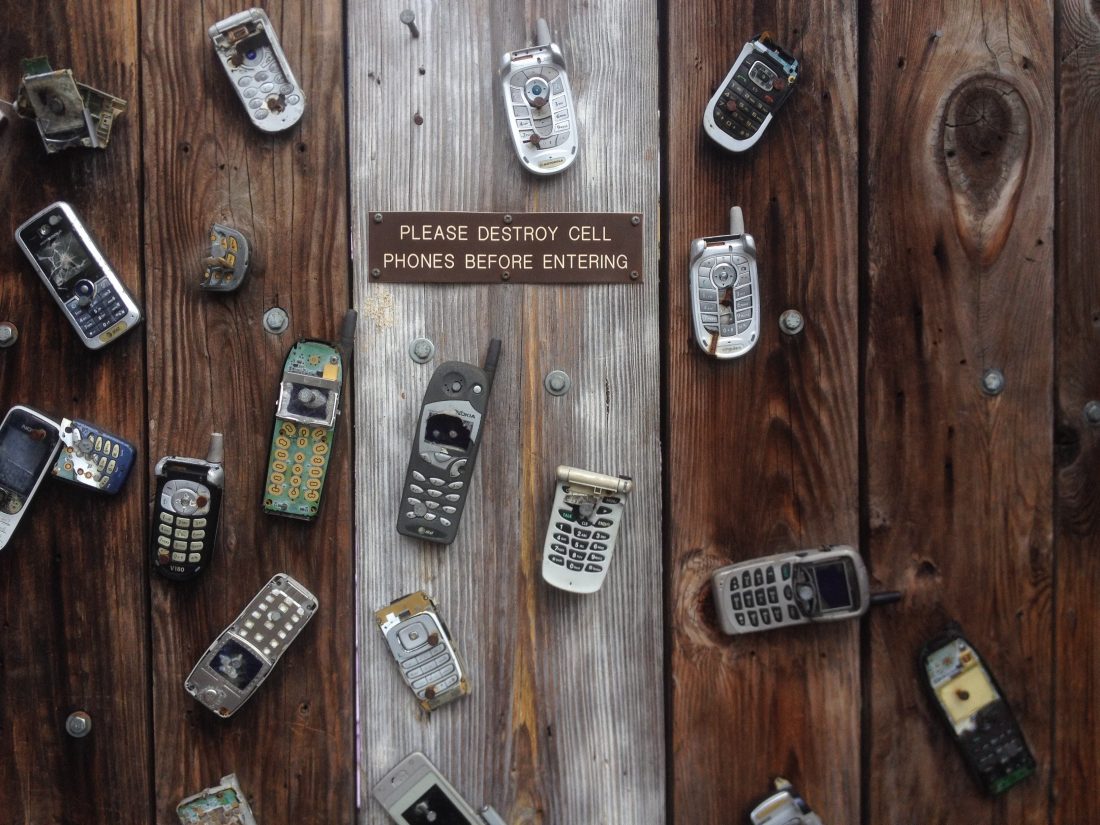We all know how basics of reducing our carbon footprint. The 3R’s, hopping onto public transport and driving less, conserving water, opting for sustainable energy sources – the list goes on. However, there’s one more that we may not even be aware of – the use of electronic devices. We’re so plugged into our gadgets everyday, we don’t even realise that even something as simple as surfing the web can make a significant contribution to carbon emissions generated by the energy consumption of data centres.
It’s impossible to simply halt all use of technology and electronic devices in our lifestyle, but we can certainly find loopholes and habits to make digital living just a bit more eco-friendly. With that said, in the name of reducing our digital carbon footprint, here are 6 simple ways to do so.
Dispose of your old gadgets correctly
 When it comes to throwing away old or retired gadgets, too often do we simply toss them into our normal household waste. We forget about certain recyclable materials in the gadgets themselves, as well as the potentially hazardous waste such as batteries that eventually end up in landfills – resulting in water and soil contamination. Instead, look out for services that include or specialise in the correct disposal or recycling of electronics, such as MM Century, Maju Ewaste, Household E-Waste, and UrbanR Recycle+.
When it comes to throwing away old or retired gadgets, too often do we simply toss them into our normal household waste. We forget about certain recyclable materials in the gadgets themselves, as well as the potentially hazardous waste such as batteries that eventually end up in landfills – resulting in water and soil contamination. Instead, look out for services that include or specialise in the correct disposal or recycling of electronics, such as MM Century, Maju Ewaste, Household E-Waste, and UrbanR Recycle+.
Go ‘old school’ on storage
 Every time you upload a photo, video, or file into a cloud storage system, you actually end up consuming more energy. Based on a Greenpeace study, global cloud computing actually consumes more electricity than all of Germany put together. Remember to give your cloud storage a good spring cleaning every once in a while by deleting unused and expired files, or just go old school and opt for external hard drives or USB flash drives instead.
Every time you upload a photo, video, or file into a cloud storage system, you actually end up consuming more energy. Based on a Greenpeace study, global cloud computing actually consumes more electricity than all of Germany put together. Remember to give your cloud storage a good spring cleaning every once in a while by deleting unused and expired files, or just go old school and opt for external hard drives or USB flash drives instead.
Limit your stream time
 Did you know that streaming films or music are massive data eaters? Based on a Global Internet Phenomena Report by bandwidth management company Sandvine, Netflix alone actually consumes a shocking 15% of global internet traffic. While no one can totally give up the convenience of streaming, try to instead download films, shows, and music playlists that you know you will revisit over and over again. Another way to cut down on internet traffic when indulging in online entertainment is reducing the resolution of the videos you watch, which reduces data and energy usage. Maybe save the 4K and 8K viewing for your TV?
Did you know that streaming films or music are massive data eaters? Based on a Global Internet Phenomena Report by bandwidth management company Sandvine, Netflix alone actually consumes a shocking 15% of global internet traffic. While no one can totally give up the convenience of streaming, try to instead download films, shows, and music playlists that you know you will revisit over and over again. Another way to cut down on internet traffic when indulging in online entertainment is reducing the resolution of the videos you watch, which reduces data and energy usage. Maybe save the 4K and 8K viewing for your TV?
Switch off your computer when not in use
 While turning off computers, laptops, or any electronic devices when not in use should come as a given when it comes to saving energy, modern day workers are guilty for simply putting devices to ‘sleep’ rather than totally shutting them off. While a ‘sleeping’ machine does use only a small amount of energy, it is still energy wasted. So, turn off your devices when not in use, and practice battery-saving habits such as lowering your screen’s brightness or switching off the keyboard backlight when not needed.
While turning off computers, laptops, or any electronic devices when not in use should come as a given when it comes to saving energy, modern day workers are guilty for simply putting devices to ‘sleep’ rather than totally shutting them off. While a ‘sleeping’ machine does use only a small amount of energy, it is still energy wasted. So, turn off your devices when not in use, and practice battery-saving habits such as lowering your screen’s brightness or switching off the keyboard backlight when not needed.
Change up your browsing habits
 Yes, even the way you surf the net or research online can affect your personal digital carbon footprint. Take one step closer in minimising it by reducing the number of opened tabs on your browser, and bookmark pages instead of searching for frequently visited websites. Other ways you can avoid eating up energy used for online browsing is to make your search as precise as possible to avoid multiple searches, and enter a website name in directly instead of searching for the website.
Yes, even the way you surf the net or research online can affect your personal digital carbon footprint. Take one step closer in minimising it by reducing the number of opened tabs on your browser, and bookmark pages instead of searching for frequently visited websites. Other ways you can avoid eating up energy used for online browsing is to make your search as precise as possible to avoid multiple searches, and enter a website name in directly instead of searching for the website.
Try an alternative search engine

If you haven’t tried search engines that also give back to the community and the earth, now’s the time to do it. Berlin-based carbon-negative business Ecosia is a search engine that donates 80% of its profits to organisations that plant trees. Another option is Gexsi, where the revenue generated from your search requests can help fund global projects and social innovators. This way, you’ll be able to give something back to the community AND the environment while still going about your work and routines.
Photos: Unsplash
Featured image: https://writix.co.uk.










